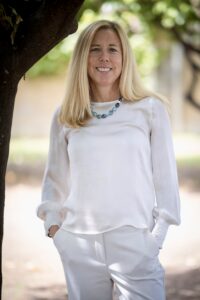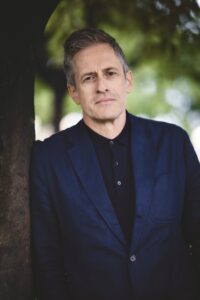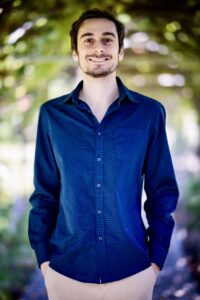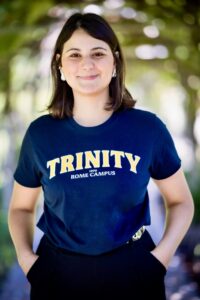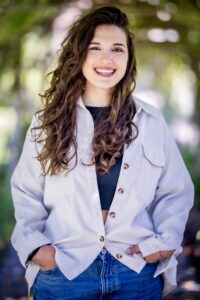Staff & Faculty
Rome Campus Staff
Recent Research & Publications by Rome Campus Faculty
Synopsis:
Giovanni Berta died in February 1921. After he was thrown from a bridge into Florence’s River Arno by Communists, Fascist sources declared his martyrdom. The brutality of his murder was emphasised by the apparent severing of his hands. Fake news, it nonetheless created an enduring narrative that affirmed both the ferocity and violence of working-class Marxists and the indomitable faith and sense of sacrifice among Fascist followers.
Giovanni Berta was memorialized throughout Fascist Italy and into the colonies via towns, streets, local Party groups and the new Florence football stadium that were all named after him. Newspaper and magazine articles, books, drawings, paintings, and material culture, such as thousands of drain covers displaying his name in Rome and Florence, further inserted his story into popular memory. Moreover, his burial beneath the Basilica of Santa Croce alongside 36 fallen Florentine comrades, in a crypt dedicated to the ‘Florentine Fallen for the Fascist Revolution’, intensified the sacrality of his story and contributed to the regime’s attempt to create legitimacy and establish a political religion.
This is the first comprehensive study of this key event in Fascist history and mythology. It offers a new approach to violence and its memory before, during and after Fascist rule by also setting Berta’s story within the contemporary context through the examination of Italy’s very limited and highly selective coming to terms with its Fascist past and cultural heritage. In Florence, the Santa Croce crypt was ‘cleansed’ of all Fascist references, Berta’s body returned to the family tomb and the stadium was renamed in the immediate postwar years. By contrast, the continued presence of drain covers across Rome, most notably in Via del Portico d’Ottavia in the centre of the Jewish Quarter, reveal the different approaches to Fascist/difficult heritage in postwar Italy. In turn, the analysis of Berta’s continuing ‘presence’ will show how such enduring myths contribute to the contemporary collective memory of the neo-fascist right.
Simon Martin holds a B.A. in History from Queen Mary and Westfield College (London), an M.A. in Slavonic Studies from the School of Slavonic and East European Studies (London) and a Ph.D. from University College London. At Trinity College Rome Campus, professor Martin teaches Sports and Society, Italy’s Holocaust, Mussolini’s Rome and Monuments and Power.
Prof. Salgò’s Spirituality and Black Feminism in Simone Leigh’s Public Art is probably the first book about an artist who will be the first Black woman to represent the United States at the Venice Biennale (the next, 59th edition, will take place in 2022), who was awarded the Hugo Boss Prize by the Solomon R. Guggenheim Museum in 2018 and who was nominated “the artist of the year” by the Italian magazine “D – la Repubblica delle donne” in 2020. In her book Prof. Salgò explores Simone Leigh’s monumental sculpture the Brick House, the first artwork displayed on the Plinth of New York’s High Line (visible until spring 2021) and seeks to illustrate the subversive potential that lies in Leigh’s determination to challenge the “Western model” (based on capitalism, rationalism, and positivism but also on sexism and racism) and to unveil the intrinsic contradictions of her postcolonial project. Sixteen-foot-tall, Brick House is a colossal bronze bust that references the vernacular architecture of Benin, Togo, Chad and Cameroon, Mammy’s Cupboard restaurant (Natchez, Mississippi), and the skirt that women wear in Candomblé rituals. Is it an example of provocative art? Does the Spur, or the “piazza,” as the chief curator of High Line Art Cecilia Alemani calls it, represent a democratic public space? Will New York’s Plinth succeed where London’s Fourth Plinth (at Trafalgar Square) failed, becoming a landmark where the official narrative of the nation can be challenged and rewritten? Could it be that, while launching an attack on the oracles of the West, Leigh fails to challenge the oracles of the High Line? To unfold these and other dilemmas, the book draws on urban studies, critical theory, art history, the theory of architecture, postcolonial and gender studies, psychoanalysis, and Yoruba aesthetics, on theories about public space and radical democracy.
photos by Timothy Schenck
Prof. Salgó holds a B.A. and a M.A. in International Affairs and Art History and a Ph.D. in Political Science. At Trinity College Rome Campus, she teaches European Union: History, Political Economy, and Society and soon a course on Visual World Politics. In her research, Salgó explores the intersections between art and politics.
http://www.postmediabooks.it/2020/251simoneleigh/9788874902514.htm
Rome Campus Faculty
Paolo Chirichigno
Paolo Chirichigno has been teaching Italian language and culture with a number of American Universities and programs in Rome for more than 15 years. He is currently the Italian department coordinator at Temple University of Rome. He bases his approach to language instruction on the close connection between language and the place where it is spoken, emphasizing the role of language as a way to know different cultures and people. He has participated in several professional training courses, including an intensive SOAR (Student Oriented Redesign Project) Course at Center for the Advancement of Teaching (Temple Philadelphia). At Trinity College Rome Campus, professor Chirichigno teaches various levels of Italian language and Culture. [email protected]
Valentina Dorato
Valentina Dorato has completed her Ph.D. thesis on Digital Humanities and Pedagogy in the department of Social Research and Communication of the Sapienza University of Rome. During her doctorate she created a new experimental online pedagogical instrument called “RomanaMENTE” with the objective of using the digital world and the city of Rome to teach Italian language in a way that emphasizes the connection between languages, cultures and places. She also has a Master in Second language Teaching from the Roma Tre University and a second-level DITALS certificate for second languages. She is author of the book Cantando si impara, a textbook for teaching Italian language thorough Music (not published yet) and some articles on Digital Humanities and Pedagogy. At Trinity College Rome Campus, she teaches Italian Language and Culture courses and a summer course on Food and Culture. [email protected]
Cristiana Filippini
Cristiana Filippini is an art historian specialized in medieval art and architecture. She earned her Ph.D. and M.A. from Johns Hopkins University and an B.A. in History of Art from the University of Florence, Italy. Her primary field of research is medieval art in Rome, while her research and teaching interests also include 17th-century art in Rome, women’s presence in the art of Rome, and museum history in Rome. She has given several papers and published articles on the subject of Roman art of the Middle Ages, in particular on the issue of narrative strategies in the painting of the Papal city. Her current research projects include a monograph on the frescoes of San Clemente in Rome and a co-authored study of another important medieval Roman mural decoration, the frescoes of Santa Maria Immacolata at Ceri. At Trinity College Rome Campus, professor Filippini teaches Rome through the Ages. Art and Architecture of the Eternal City and a course on Women and Art. [email protected]
Elena Fossà
Elena Fossà earned her B.A. in Pedagogy at the Libera Università degli Studi Maria SS. Assunta (LUMSA) in Rome. She has taught literature at the high school level in Siena and Italian language to foreigners at the Centro Linguistico Dante Alighieri in Siena and in Rome. She has been Professor of Italian language and Culture at the Trinity College Rome Campus for 30 years, served as Interim Director for the program in 2016 and is currently the program’s Internship Coordinator. [email protected]
Jan Gadeyne
Jan Gadeyne holds a Ph.D. in Archaeology and Ancient Art History and an M.A. in Classics from the Katholieke Universiteit Leuven (Louvain, Belgium). He also studied late antique art and archaeology at the Westfälische Wilhelmsuniversität Münster (Germany). He came to Rome in 1987 with a grant of the Italian government and studied early Christian Archaeology at the Pontificio Istituto di Archeologia Cristiana. Since 1988 he has been teaching for several American study abroad programs, including Temple University, Cornell University, the University of Miami, Arcadia University and Trinity College, and for summer architecture programs, including Yale University, the University of Maryland and Tunghai University (Taiwan). His courses embrace Ancient Roman Art and Architecture, Urban History of Rome in Antiquity and the Middle Ages, Late antique and early Byzantine Art and Architecture, Ancient History of Rome and the Mediterranean. Recently, he has become part of a research group for the study and promotion of the Aurelian wall in collaboration with the department of Architecture of the Sapienza University of Rome. Since 2005, he is co-director of the excavation of the Roman villa on the Piano della Civita in Artena (40 miles southeast of Rome). The title of his Ph.D. in Archaeology and Ancient Art History is “Function and dysfunction of the City: Rome in the 5th century AD.” He has published papers on Roman lead seals, Early Christian apse mosaics, the formation of the street system in Early Medieval Rome and (especially) on the excavations of the Roman villa at Artena. He has co-edited, together with Gregory Smith, Perspectives on Public Space in Rome, from Antiquity to the Present Day, published by Ashgate in 2013. He is also one of the officers of the Rome charter of the Archaeological Institute of America. At Trinity College Rome Campus, he teaches The Ancient Art of Rome, The City of Rome, and Continuity and Transformation of the Ancient Mediterranean: Rome, Constantinople and Damascus. [email protected]
Anna Gorchakovskaya
Anna Gorchakovskaya is an independent researcher, curator and teacher currently based in Rome. She holds a degree in Art History from the University of Bologna (2016) and a master’s degree in Gender Studies from the Roma Tre University (2019). In 2016 Anna collaborated with the Peggy Guggenheim Collection in Venice as an Assistant Events Coordinator. Between 2016 and 2020 Anna collaborated with the curatorial space Adiacenze based in Bologna. As part of curatorial team of Adiacenze, Anna contributed to numerous exhibition projects of the space. Between 2018 and 2021 Anna collaborated with the Galleria Nazionale D’Arte Moderna e Contemporanea and contributed, as a curator, researcher, editor and translator, to its curatorial and editorial projects. Among other exhitibitions, Anna has contributed to the design and organization of Io dico Io – I say I, Women Up, Cosmowomen. In 2020-2021 Anna curated the show Out of Focus that took place at the Galleria Nazionale d’Arte Moderna e Contemporanea and was the Assistant Curator of the show Bigger than Myself. Heroic Voices from Ex-Yugoslavia at MAXXI. In 2021 Anna Gorchakovskaya co-founded On Site, a project aimed at bringing together the international realities of the city of Rome and the local Roman artistic and cultural scene. Recently, she served as a coordinator for the project Pier Paolo Pasolini. Tutto è santo and an Assistant Curator for the show Pier Paolo Pasolini. Tutto è santo. Corpo politico at MAXXI Museo nazionale delle arti del XXI secolo. She currently teaches a course on contemporary art in Rome with Cornell University. At Trinity College Rome Campus, Anna teaches Art and Activism in Rome.
Chiara Lucarelli
Chiara Lucarelli holds a degree in Foreign Languages and Literatures from University of Roma Tre as well as an M.A. in Anglo-Irish Literature and a Ph.D. in Comparative Literatures from University College Dublin (Ireland). Her research interests span from Italian, English and American Literature, to Cinema and Cultural studies and she has published several articles on literary magazines. During the course of the past few years she has taught courses for various Study Abroad programs in Rome, among which: Travel Literature, English and American Writers in Italy, Introduction to Italian Culture, Italian Culture and Media, Italian Cinema, Community Engagement and Internship: A Comparative Approach to the Italian Workforce. At Trinity College Rome Campus, she teaches a course on Contemporary Italy through Cinema. [email protected]
Simon Martin
Simon Martin holds a B.A. in History from Queen Mary and Westfield College (London), an M.A. in Slavonic Studies from the School of Slavonic and East European Studies (London) and a Ph.D. from University College London. He completed his doctoral thesis, which was later developed into a book, on the topic of football and Fascism in Mussolini’s Italy. Published in 2004, Football and Fascism won the British Society for Sport’s History’s Lord Aberdare prize for literary history. His second book Sport Italia: the Italian Love Affair with Sport was published in 2011 and also won the Lord Aberdare prize, in 2012. His current research is focused upon the memory of Fascism through material culture. In 2019 he co-edited an edition of Modern Italy dedicated to ‘Difficult Heritage’ and is currently writing a third book examining memory and martyrdom on Fascist Italy. Specialized in contemporary Italian history, cultural history, memory and sport, he has taught at University College London, the University of Hertfordshire, the University of Roma Tre and a number of US university programs in Italy. He is co-Director of the University of Buckingham’s Masters in the History of Sport by Research and is a Research Fellow at the British School at Rome. At Trinity College Rome Campus, professor Martin teaches Sports and Society, Mussolini’s Rome, History Wars and Italy’s Holocaust. [email protected]
Valentino Pace
Valentino Pace is Trinity College Rome Campus’ longest serving professor. A renowned scholar in his field, professor Pace has been teaching with Trinity’s Rome program since 1975. A graduate of the Sapienza University of Rome, he is a professor emeritus of Medieval and Byzantine Art at the University of Udine where he began teaching in 1998. He has served as a visiting professor and fellow in numerous Italian and international institutions, including Humboldt University of Berlin, Johns Hopkins University, Princeton University, the Sapienza University of Rome, Roma Tre University, the University of Naples “L’Orientale”. He has been Research-Professor (“Richard-Krautheimer-Gastprofessur”) at the Bibliotheca Hertziana. Since 2003 he is Foreign Member of the Academy of Sciences and Letters at the University of Oslo. In 2010 he has received an Award “for distinguished Research in the field of Medieval and Byzantine Art History” from the University of Belgrade. He has published and edited a number of books and more than 250 articles (essays, proceedings, reviews) in international journals. [email protected]
Fabio Padovano
Fabio Padovano holds a Ph.D. in Economics at George Mason University, where he was Research Assistant to Nobel Laureate James Buchanan, and a doctorate in Quantitative Methods from the Sapienza University of Rome. He is Professor of Public Finance at the University of Roma Tre and Director of the Centre Condorcet for Political Economy, at the University of Rennes 1, France. He has served as Visiting Professor at the University of Western Ontario, the University of Maryland, George Mason University, the University of Fribourg, and was an Academic Visitor at the London School of Economics and Political Science and Professeur Invité at the Université de Rennes1. He has been invited to deliver courses on public finance and public choice in various universities internationally, including in the U.S., China, Republic of South Korea, France, Great Britain, Switzerland, the Netherlands and Germany. In Italy he taught at the Universities LUISS Guido Carli, University of Lecce, University of l’Aquila and at the Sapienza University of Rome. He has been President of the European Public Choice Society (2009-11) and a former Board member of the Italian Society of Public Economics (SIEP). He serves on the Board of Editors of the journals Public Choice, Constitutional Political Economy and European Journal of Government and Economics. He acts as referee for Cambridge University Press, European Journal of Political Economy, Public Choice, Journal of Public Economics, Journal of Cultural Economics, Regional Studies, European Journal of Law and Economics, Il Giornale degli Economisti and more. He is author of several dozen articles in international scholarly journals such as Public Choice, European Journal of Political Economy, Economics of Governance, Journal of the Royal Statistical Society, Economic Inquiry, European Economic Review, Constitutional Political Economy, International Journal of Law and Economics, Journal of Institutional and Theoretical Economics, Journal of Cultural Economics as well as of two volumes: Italian Institutional Reforms: A Public Choice Perspective (New York, Springer, 2008 [with Roberto Ricciuti]) and Politics and Economics of Regional Transfers (Cheltenham, Edward Elgar, 2008). At Trinity College Rome Campus, he teaches courses on Public Choice, The Economics of Religions, The Economics of Art and Public Finance. [email protected]
Livio Pestilli
Livio Pestilli holds a M.A. in English Literature from the University of Chicago and a Ph.D. in Art History from the Sapienza University of Rome. He has published extensively on a wide range of artists, such as Cavallini, Michelangelo, Bernini, Michael Sweerts, Paolo de Matteis, and authors such as Pliny, Vasari, Bellori and Lord Shaftesbury. He has also written a number of essays on a frequent but often overlooked socio-anthropological theme in Italian art: the representation of the orthopedically impaired body. He is the co-editor with Sebastian Schütze and Ingrid Rowland of the volume “Napoli is the World”. Neapolitan Art and Culture from Humanism to the Enlightenment (2003) and the author of the monograph Paolo de Matteis: Neapolitan Painting and Cultural History in Baroque Europe (Ashgate, 2013). In 2017 he published an interdisciplinary book by the title Picturing the Lame in Italian Art from Antiquity to the Modern Era (Ashgate/Routledge) and has recently completed a book on Bernini and His World that should see the light in 2021. Prof. Pestilli directed the Trinity College Rome Campus for 37 years, until the fall of 2016. He currently teaches courses on Renaissance and Baroque Art: Michelangelo and His World and Bernini and His World. [email protected]
Danica Pušić
Danica Pušić received her Ph.D. in Linguistics at Scuola Normale Superiore di Pisa. She received her M.A. at the University La Sapienza in Rome and a B.A. in Classical Studies at the University of Belgrade. In 2011, she was an Affiliated Fellow at the American Academy in Rome. She has been teaching since at Trinity College Rome Campus, Temple University Rome, and John Cabot University. Danica Pušić’s research focuses on linguistic issues regarding Latin and Greek verbal aspectology. She also published the translation into Serbo-Croatian of Nicolaus Copernicus’ De revolutionibus orbium coelestium (On the Revolutions of the Heavenly Spheres). This is the first complete translation into Serbo-Croatian of the work from the original Latin. Professor Pušić won the Open Society Institute’s Grants for three years for research-focused social and political interest topics for the Balkans. She is also the official translator and interpreter at the Rome Criminal Tribunal (Italian – Serbo-Croatian; Serbo-Croatian – Italian). At TCRC, Danica Pušić teaches Love and Eros in Ancient Rome and tutorials in Latin and Ancient Greek at all levels. [email protected]
Eszter Salgó
Eszter Salgó holds a B.A. and a M.A. in International Affairs and Art History and a Ph.D. in Political Science. Since 2007 she has been teaching undergraduate and graduate courses at both private and public universities on various topics, including World Politics, International Organizations, the European Union, Politics and Psychology, Comparative Politics and Identity Politics. In her research, professor Salgó explores the intersections between art and politics, the symbolic and the mythological construction of social communities, the emotionalization, and the dramatization and sacralization of politics through the lens of social sciences, anthropology, art theory and psychoanalysis. Her recent publications include: “Simone Leigh’s Postcolonial Challenge in the Center of New York City” (Postmedia Books, March 2020); “Images from Paradise: the Visual Communication of the European Union’s Federalist Utopia” (Berghahn Books 2017); and “Psychoanalytic Reflections on Politics: Fatherlands in Mothers’ Hands” (Routledge 2014). At Trinity College Rome Campus, professor Salgó teaches European Union: History, Political Economy, and Society. [email protected]
Carlotta Silvagni
Carlotta Silvagni holds a B.A. in the Literature of Cinema and Theatre from the Sapienza University of Rome and a M.A., as a Fulbright Scholar, in Integrated Marketing Communication from Emerson College in Boston. After working for eight years as a copywriter in several leading advertising agencies in Rome, she earned a diploma for teaching Italian as a Second Language from Dilit International House of Rome and obtained the DITALS Certificate, Second Level. Since 2003 she has been teaching Italian for several American Universities and private foreign companies. At Trinity College Rome Campus, professor Silvagni teaches various levels of Italian language and Culture. [email protected]
Piero Vereni
Piero Vereni is an associate professor of Cultural Anthropology at the University of Rome – Tor Vergata. He earned a Ph.D. in anthropology in 1998 doing fieldwork in Western Greek Macedonia. He has also done fieldwork (1998-1999) between Northern Ireland and the Republic of Ireland while working as a research assistant at the Queen’s University of Belfast. His current scholarship is focused on prisons in Italy; squats in Rome; Bangladeshi immigrants in Rome; and religious diversity in Rome. Since 2019 he has been nominated Representative of the Dean of the University of Rome – Tor Vergata for the social center “polo culturale ex Fienile,” where he is the director of LaPE Ethnographic Practices Lab. His most recent publications include: La ninfa e lo scoglio. Riflessioni sul senso dell’antropologia culturale, Roma, Universitalia, 2018; “Etnografie in biblioteca. Verso una nuova rilevanza del sapere antropologico,” in David Graeber e Marshall Sahlins, I, Milano, Cortina, pp. I-XXII, 2019; (con Giulia Casentini), “Lo spazio, il diverso, la sicurezza. note antropologiche sul controllo simbolico dei flussi migratori,” Documenti geografici, [S.l.], n. 2, p. 67-86, feb. 2020. At Trinity College Rome Campus, professor Vereni teaches Urban and Global Rome and works with students participating in the internship at the LaPE Ethnographic Practices Lab he directs. [email protected]
Quick Links
Contact the Rome Adviser
Hartford, CT 06106
